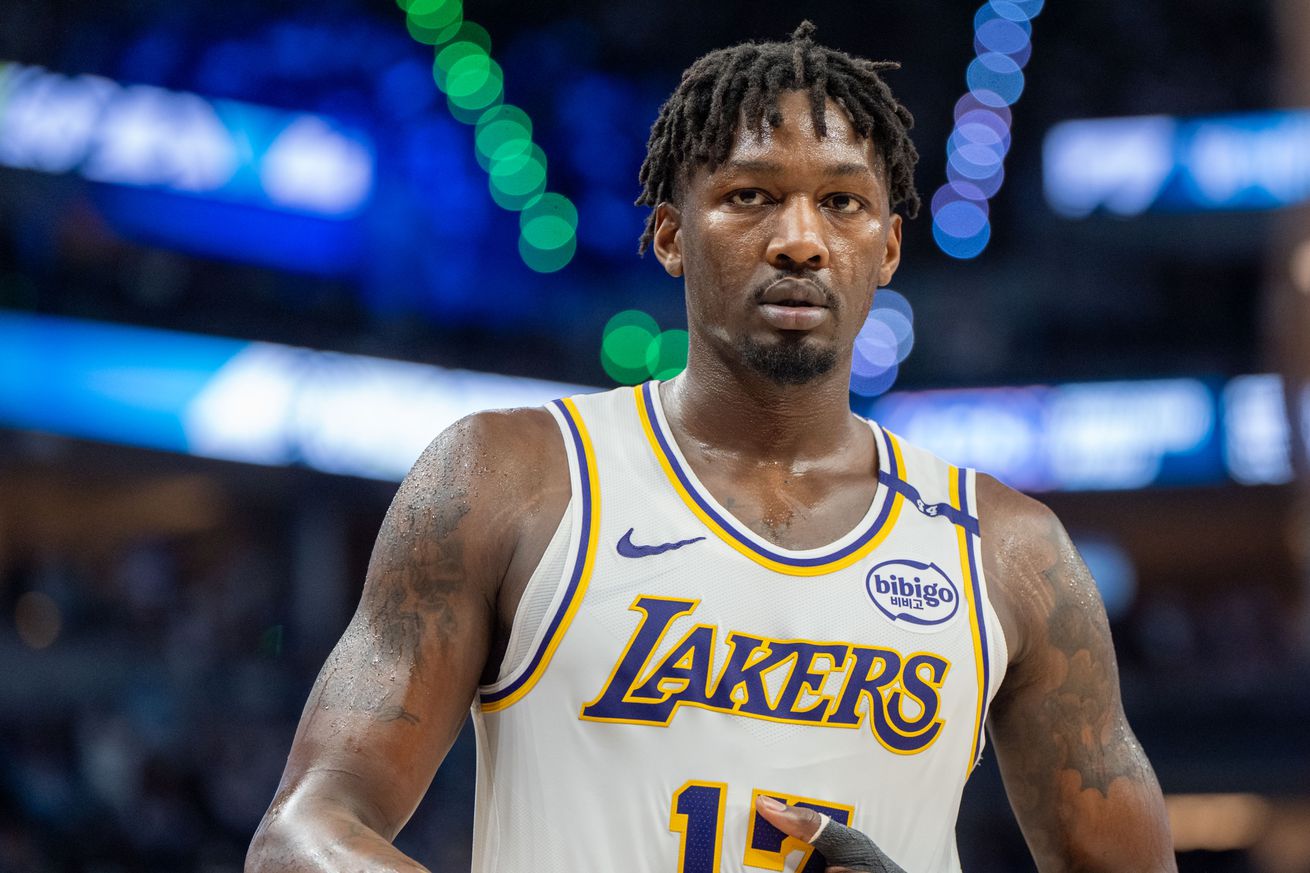
Dorian Finney-Smith’s contract details make the Lakers’ decision not to re-sign him look even worse…albeit with a major caveat.
The Lakers’ decision to allow Dorian Finney-Smith to walk for nothing in free agency rubbed many fans the wrong way. After all, is that the message they should be sending to Luka Dončić only a few weeks before he becomes eligible to sign a four-year, $220-plus million extension?
On Monday, HoopsHype’s Michael Scotto shared the full details of Finney-Smith’s new contract with the Houston Rockets, which might make the Lakers’ decision to let him walk look even worse on the surface.
Update: The Houston Rockets signed Dorian Finney-Smith to a four-year, $53 million deal, which is fully guaranteed the first two seasons, has a third-year non-guaranteed salary, and a fourth-year non-guaranteed salary and player option, league sources told @hoopshypeofficial.bsky.social.
— Michael Scotto (@mikeascotto.bsky.social) 2025-07-07T17:40:56.612Z
ESPN’s Dave McMenamin originally reported that the Lakers “exercised discipline in negotiations” with Finney-Smith to preserve cap space for 2027, which is when both Giannis Antetokounmpo and Nikola Jokić could become free agents. However, the structure of Finney-Smith’s contract with the Rockets wouldn’t have affected their 2027 cap-space plan whatsoever.
So, did the mom-and-pop Lakers cheap out by not re-signing Finney-Smith? Not quite. They essentially chose between re-signing him and signing both Deandre Ayton and Jake LaRavia.
After signing Ayton, LaRavia and No. 36 overall pick Adou Thiero and re-signing Jaxson Hayes (via non-Bird rights, for some unforeseen reason), the Lakers now have $195.0 million in salary on their books. Since they split the $14.1 million non-taxpayer mid-level exception on Ayton and LaRavia, they’re hard-capped at the $195.9 million first apron. With a full 15-man roster under contract, they’re just over $908,000 below that line at the moment.
The Lakers can create a bit more financial flexibility by waiving Shake Milton, whose $3 million contract becomes fully guaranteed on July 20. However, they’d still be only $3.9 million below the first apron. Finney-Smith is earning an estimated $12.3 million this coming season, so the Lakers would have had to clear an additional $8.4 million to fit his contract in under the hard cap.
Had the Lakers instead signed Finney-Smith to that exact contract and waived Milton before touching their mid-level exception, they’d have $190.25 million on their books. That would have left them roughly $5.7 million below the first apron with 13 players under contract. However, they wouldn’t be hard-capped since they hadn’t used the non-taxpayer mid-level exception (NTMLE).
In fact, they wouldn’t even have access to the full NTMLE since that would push them over the first apron. Instead, they’d have the $5.7 million taxpayer MLE. Using that would hard-cap them at the $207.8 million second apron.
The Lakers also wouldn’t have access to the $5.1 million bi-annual exception if they crossed the first apron. If they waive Milton, they’re currently able to spend about $3.9 million of it. Had they signed Hayes to a standard one-year veteran-minimum contract rather than via his non-Bird rights, they’d be able to spend nearly the full amount.
So, the Lakers’ two choices were: Lose Finney-Smith but sign Ayton, LaRavia and have part of the bi-annual exception available, or re-sign Finney-Smith, forfeit the bi-annual exception and have the $5.7 million taxpayer mid-level exception available.
Perhaps they could have convinced Ayton or LaRavia to take a slight pay cut and fit into the taxpayer MLE instead, although other teams could have tried to come over the top for Ayton with their full non-taxpayer MLE.
Granted, the Lakers spent three second-round picks to acquire Finney-Smith ahead of the trade deadline this past season. He’s also a close friend of Dončić’s dating back to their time together on the Dallas Mavericks. The second-rounders were a sunk cost at this point, but the Lakers did have to weigh what message allowing Finney-Smith to walk for nothing would send to Dončić.
The Lakers also could have tried to salary-dump Gabe Vincent ($11.5 million) or Maxi Kleber ($11.0 million), both of whom are on expiring contracts, to create enough room under the first apron to re-sign Finney-Smith while still using the non-taxpayer MLE. It’s unclear how much they would have had to give up to get off either of those contracts, though. And they don’t have many draft picks to attach to contracts to dump them, either.
Spending three second-round picks on a half-season rental of Finney-Smith looks bad in retrospect, but signing both Ayton and LaRavia with the non-taxpayer MLE was strong work. If no team was willing to take on Vincent or Kleber to allow the Lakers to have their cake and eat it too, they effectively had to choose between re-signing DFS and landing Ayton and LaRavia.
